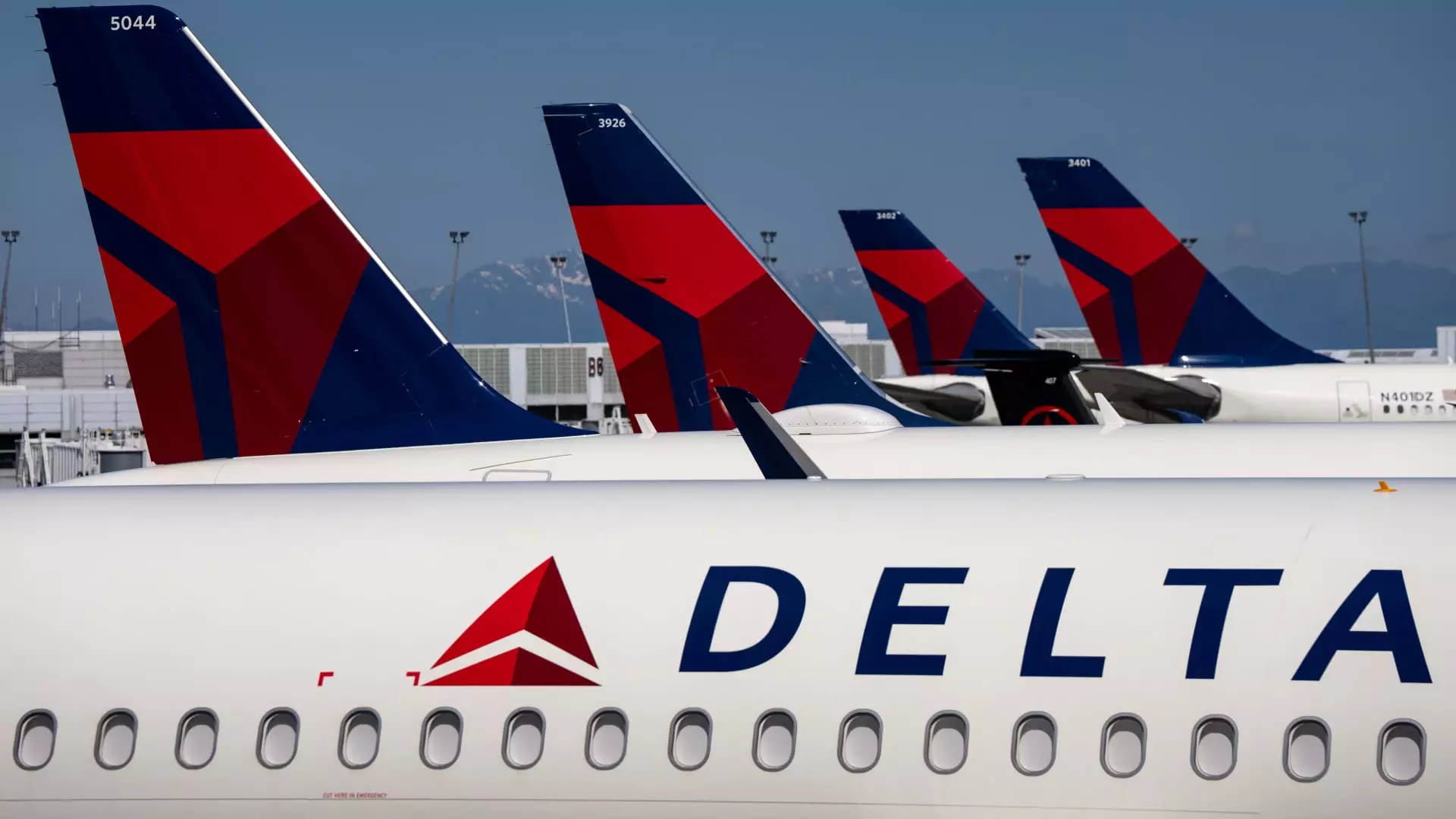Delta Air Lines, once the backbone of U.S. aviation, appears to be facing turbulent skies as dubious economic indicators emerge. The latest forecast from CEO Ed Bastian rings alarm bells—Delta won’t increase its flying capacity in the latter half of the year due to disappointing bookings directly tied to the unsettling landscape shaped by President Trump’s erratic trade policies. One can’t help but question how a company that started 2025 with optimism, projecting it as potentially their best financial year ever, is now on the defensive regarding its growth trajectory.
Bastian’s recent comments reflect a broader sentiment among industry leaders grappling with a significant downturn in consumer confidence. The Ivy League-educated CEO previously labeled the administration’s newfound regulatory approach as a “breath of fresh air,” but is now drastically reconsidering that position as it contrasts sharply with the realities of declining bookings. It points to a critical lesson in economic unpredictability: what may appear as a golden opportunity can quickly turn sour.
Wall Street Reaction: Fear and Uncertainty
The New York Stock Exchange’s reaction to Delta’s forecast highlights growing fears among investors about the airline industry’s future. Analysts have been retreating from previous optimistic projections, slashing earnings estimates and price targets for airlines in swift succession. “In the last six weeks, we’ve seen a corresponding reduction in broad consumer confidence and corporate confidence,” Bastian noted, shedding light on a concerning trend that begs for attention.
In January, travel demand was on a promising upswing, but by mid-February, a palpable slowdown became evident. One would think that a booming economy would bolster corporate travel spending, but that’s far from the case. Businesses are reevaluating the need for travel, and the government’s decisions to cut down on its workforce only exacerbate the issue. If corporate America is no longer willing to invest in travel, what hope does Delta have for a rebound?
Capacity Cuts: A Troubling Trend
Initially, Delta had planned a modest increase in its flying capacity—between 3% to 4%—for the second half of the year. However, Bastian’s stark announcement of flat capacity year-over-year signals that Delta is prepared to tighten its belt in response to these economic headwinds. This decision sets a disheartening precedent; analysts predict that Delta may lead a wave of similar reductions across the airline sector.
TD Cowen’s analysts suggest that this trend will not only impact Delta but linger ominously over the entire industry. The phrase “slower-growth environment” is less a casual descriptor and more a harbinger of a looming crisis, disengaging Delta from its previous position as the most profitable U.S. airline. One must wonder whether this tightening of capacity is a temporary measure or a sign of structural shifts in the market that could redefine U.S. air travel.
The Resilience of Premium Travel
While Delta faces these challenges, it’s crucial to underline a fascinating development: international and premium travel segments remain relatively robust. This paradox presents an intriguing opportunity for Delta to pivot. There’s a demographic of affluent travelers who continue to spend, bolstered by an insatiable appetite for luxury experiences. Delta could refocus its marketing and services to attract this segment consistently, potentially obscuring broader economic trends that seem to threaten its fundamentals.
However, this approach demands a strategic realignment, a delicate shift in focus that may run counter to the more traditional business model Delta has sustained. Adapting to this niche could either salvage its profitability or reveal inherent weaknesses in a legacy business structure that has yet to innovate.
A Call for Vigilance
As Delta Air Lines navigates through uncertain economic waters, the air travel landscape reflects broader societal issues exacerbated by political shifts and economic instability. The implications of Trump’s policies are spilling over into areas well beyond trade and regulatory environments; the consumer market’s response will be critical.
It’s essential for Delta and its stakeholders to remain vigilant, responding not just in real-time but anticipating shifts before they cascade into crises. As we watch the unfolding narrative of Delta, more than numbers and forecasts are at stake—they represent the intricate dance of capitalism and governance in a hyper-connected world. The coming months will reveal whether Delta can adapt to this landscape or risk being left behind.

